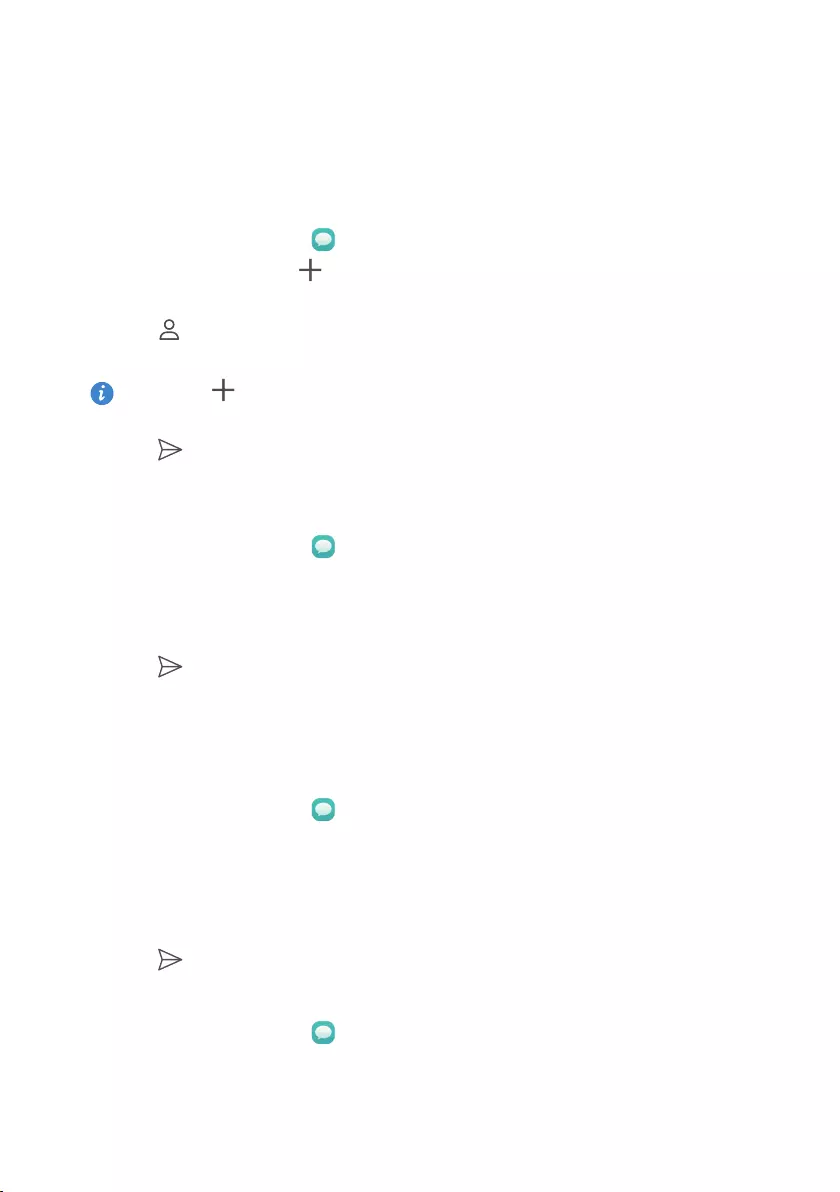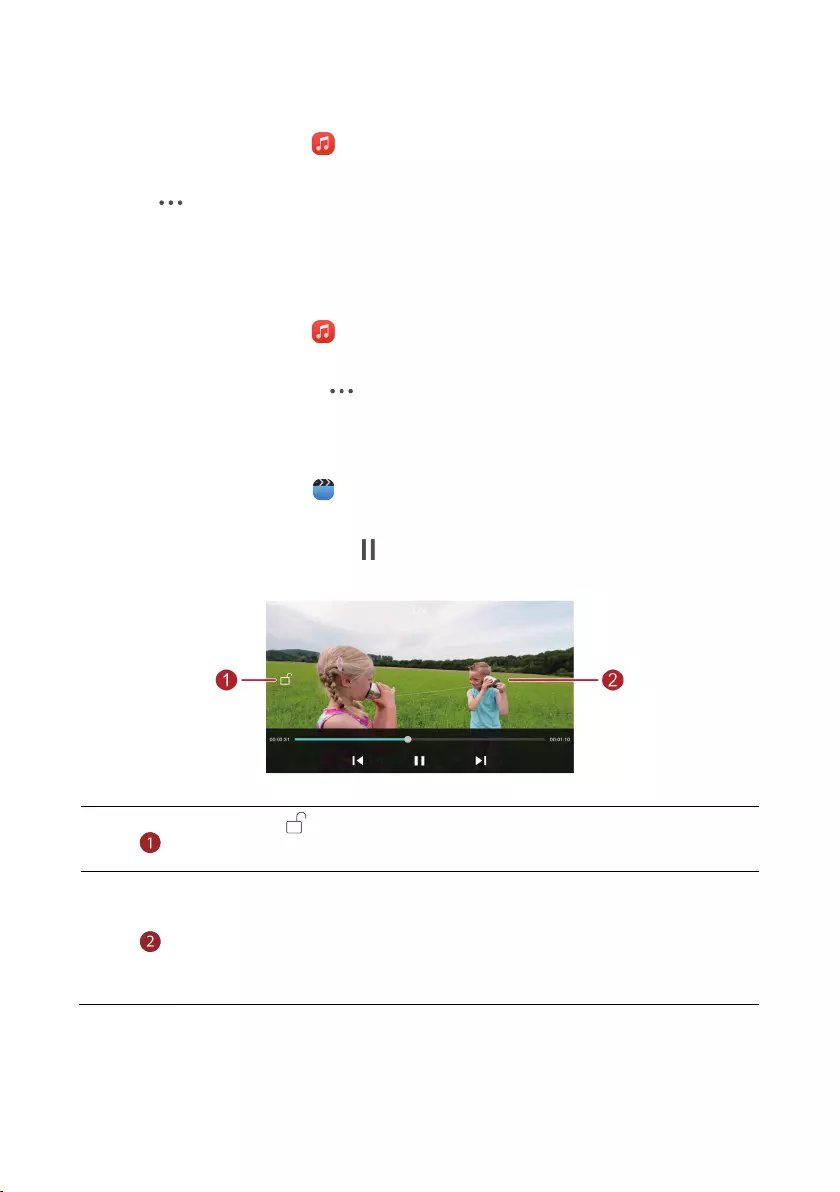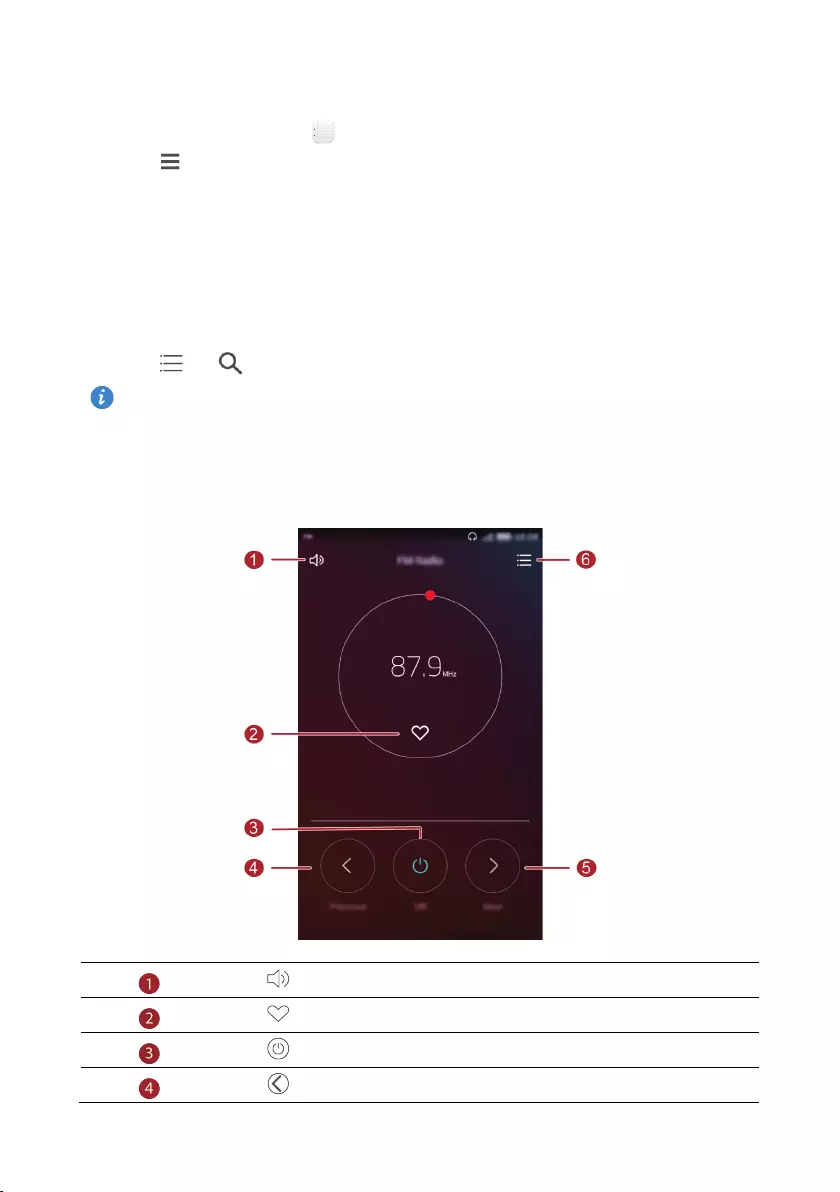Table of Contents
- 6011850-CUN-L03 User Guide-(01,EN) 20160307.pdf
- Foreword
- First-class functions
- Getting started
- Your phone at a glance
- Locking and unlocking the screen
- Connecting to a Wi-Fi network
- Turning on mobile data
- Connecting your phone to a computer
- Importing contacts from your old phone
- Touchscreen gestures
- Motion control
- Status icons
- Navigation bar settings
- Home
- Notification
- Accessing applications
- Personalizing your phone
- Texting
- Calls and contacts
- Messaging and email
- Camera and gallery
- Music and video
- Network and sharing
- Applications
- Phone settings
- Turning on location services
- Modifying display settings
- Touch-disable mode
- Changing the lock screen style
- Turning on or off airplane mode
- Setting the PIN of your SIM card
- Setting up an account
- Restoring factory settings
- Updating your phone
- Setting the date and time
- Changing the system language
- Privacy protection
- Accessibility
- Safety information
- Legal Notice
Huawei Y5 II User Manual
Displayed below is the user manual for Y5 II by Huawei which is a product in the Smartphones category. This manual has pages.
Related Manuals

User Guide

i
Contents
Foreword ....................................................................................................... 1
First-class functions ....................................................................................... 2
Easy Key ........................................................................................................................ 2
Safe ............................................................................................................................... 2
New camera modes ....................................................................................................... 2
Launching the camera from gallery ............................................................................... 3
Thumb mode ................................................................................................................. 3
Getting started .............................................................................................. 5
Your phone at a glance .................................................................................................. 5
Locking and unlocking the screen.................................................................................. 6
Connecting to a Wi-Fi network ...................................................................................... 6
Turning on mobile data ................................................................................................. 7
Connecting your phone to a computer .......................................................................... 7
Importing contacts from your old phone ....................................................................... 7
Touchscreen gestures .................................................................................................... 8
Motion control .............................................................................................................. 8
Status icons ................................................................................................................. 10
Navigation bar settings ................................................................................................ 10
Home........................................................................................................................... 11
Notification.................................................................................................................. 14
Accessing applications ................................................................................................. 14
Personalizing your phone............................................................................................. 15
Texting ......................................................................................................................... 16
Calls and contacts........................................................................................ 18
Making a call ............................................................................................................... 18
Answering or rejecting a call ....................................................................................... 19
What you can do during a call ..................................................................................... 20
Answering a third-party call ......................................................................................... 20
Making a conference call ............................................................................................. 21
Using the call log ......................................................................................................... 21
Turning on pocket mode ............................................................................................. 22
Call settings ................................................................................................................. 22
Managing contacts ...................................................................................................... 22
Searching for a contact ................................................................................................ 23
Importing or exporting contacts .................................................................................. 23
Adding a contact to your favorites .............................................................................. 25

ii
Contact groups ............................................................................................................ 25
Messaging and email ................................................................................... 27
Sending a text message ............................................................................................... 27
Replying to a message ................................................................................................. 27
Managing messages .................................................................................................... 27
Adding an email account ............................................................................................. 28
Sending an email ......................................................................................................... 29
Checking your emails ................................................................................................... 29
Setting up an account ................................................................................................. 29
Camera and gallery ...................................................................................... 31
Capture screen ............................................................................................................. 31
Taking a photo ............................................................................................................ 32
Capture mode .............................................................................................................. 32
Shooting a video.......................................................................................................... 34
Camera settings ........................................................................................................... 34
Gallery ......................................................................................................................... 34
Music and video .......................................................................................... 37
Adding songs .............................................................................................................. 37
Listening to music ........................................................................................................ 37
Creating a playlist ........................................................................................................ 37
Playing a playlist .......................................................................................................... 37
Deleting a playlist ........................................................................................................ 38
Setting a song as the ringtone ..................................................................................... 38
Playing a video ............................................................................................................ 38
Network and sharing................................................................................... 39
Turning on mobile data ............................................................................................... 39
Wi-Fi network .............................................................................................................. 39
Sharing your phone's mobile data connection ............................................................. 40
Transferring data through Bluetooth ........................................................................... 41
Transferring data using Wi-Fi Direct ............................................................................. 42
Transferring data between your phone and computer ................................................. 42
Applications ................................................................................................ 44
Managing applications ................................................................................................ 44
Backup ........................................................................................................................ 45
Phone Manager ........................................................................................................... 45
Calendar ...................................................................................................................... 46
Clock ........................................................................................................................... 48
Weather ...................................................................................................................... 49

iii
Note ............................................................................................................................ 49
FM radio ...................................................................................................................... 50
Phone settings ............................................................................................. 52
Turning on location services ........................................................................................ 52
Modifying display settings ........................................................................................... 52
Touch-disable mode .................................................................................................... 53
Changing the lock screen style .................................................................................... 53
Turning on or off airplane mode .................................................................................. 54
Setting the PIN of your SIM card ................................................................................. 54
Setting up an account ................................................................................................. 55
Restoring factory settings ............................................................................................ 55
Updating your phone .................................................................................................. 56
Setting the date and time ............................................................................................ 56
Changing the system language .................................................................................... 57
Privacy protection ........................................................................................................ 57
Accessibility ................................................................................................................. 58
Safety information....................................................................................... 59
Legal Notice ................................................................................................ 65

1
Foreword
Please read this guide carefully before you start using the phone.
All pictures and illustrations in this document are for your reference only. The actual product
may vary.
Features in this guide are for your reference only. Some features may not be supported by all
phones.
Symbols and definitions
Note Highlights important information and tips, and provides additional
information.
Caution Indicates potential problems that may arise, such as device damage
or data loss, if proper care or attention is not given.

2
First-class functions
Easy Key
The Easy key is a multi-functional key on the left side of your phone. Different gestures you
perform with the Easy key will launch different functions. It's completely customizable so you
can define what each gesture does.
To customize the Easy key, go to >
Easy Key
.
Safe
The Safe function helps you keep your important files and privacy protected.
Enabling the safe
1.
On the home screen, touch .
2.
Under
Categories
or
Local
, touch
Safe
.
3.
Touch
Enable
.
4.
Follow the onscreen instructions to enter passwords and answers to security questions, and
then touch
Done
.
Adding files to the safe
1.
On the home screen, touch .
2.
Under
Categories
or
Local
, touch
Safe
.
3.
Enter the password, and touch
Done
.
4.
Touch
Add
.
5.
Follow the onscreen instructions and select files you want to add to the Safe.
6.
Touch
ADD
to add the selected files to the Safe.
New camera modes
Front flash
The front flash compensates for dark scenes and backlit objects to achieve better lighting
conditions.
1.
On the home screen, touch .
2.
Touch to switch to the front camera.

3
3.
Touch > to turn on the front flash.
4.
Touch
to start shooting.
Time-lapse mode
Use this mode to create an accelerated video of a slow-changing scene, such as the
sunset or sunrise.
1.
On the home screen, touch .
2.
Swipe left or right to select
Time-lapse
.
3.
Touch to start recording.
4.
Touch to stop recording. The captured video will be played back at an accelerated
pace.
Launching the camera from gallery
1.
On the home screen, touch .
2.
Flick down from the Time screen to display the viewfinder in half screen mode and flick
down again to open the camera.
3.
Touch
to take a photo.
4.
Touch to return to Gallery.
Thumb mode
Thumb mode makes it easier to use phones with large screens and quickly share QR contact
cards with friends.
One-hand layout
1.
On the home screen, touch .
2.
Under
All
, touch
One-hand UI
>
One-hand layout
.
3.
Enable
One-hand layout
. You can then swipe the virtual navigation bar to either side to
change the screen layout, bringing everything within reach.

4
Shifting keyboard
1.
On the home screen, touch .
2.
Under
All
, touch
One-hand UI
>
Shifting keyboard
.
3.
Enable
Shifting keyboard
. You can then touch the arrow on either side of the screen to
move the keyboard, dialer, or in-call menu to the side within reach.
Moving the screen down
On the contacts, dialer, messaging, or email screen, if you can't reach items near the top of
the screen, touch the upper half of the screen and drag down and release (after 1 second) to
shift the entire interface down closer to your thumb.
From the dialer, contacts or messaging screen, drag down and then release to display your
personal QR contact card. Your friends can scan this to obtain your phone number instantly.

5
Getting started
Your phone at a glance
Headset jack
Power button
Front camera
Volume button
Front flash
Earpiece
Easy key
Light sensor
Speaker
Microphone
Micro USB port
Rear camera
Microphone
Dual color temperature flash

6
Locking and unlocking the screen
Locking the screen
Method 1: Press the power button to manually lock the screen.
Method 2: After being idle for a specified period of time, your phone automatically locks
its screen.
To set the screen lock method, touch on the home screen, On the displayed
General
tab, touch
Screen lock & passwords
>
password
.
Unlocking the screen
When the screen is off, press the power button to turn it on. Slide your finger towards any
direction to unlock the screen.
Connecting to a Wi-Fi network
1.
Flick down from the status bar to open the notification panel.
2.
Under
Shortcuts
, touch and hold to display the Wi-Fi settings screen.
3.
Touch the Wi-Fi switch to turn on Wi-Fi. Your phone then scans for available Wi-Fi
networks and displays them.

7
4.
Touch the Wi-Fi network you want to connect to. If the Wi-Fi network is encrypted, enter
the password when prompted.
Turning on mobile data
1.
Flick down from the status bar to open the notification panel.
2.
Under
Shortcuts
, touch to turn on mobile data.
When you don't need to access the Internet, turn off mobile data to save battery
power and reduce data usage.
Connecting your phone to a computer
Use a USB cable to connect your phone to a computer, and follow the onscreen instructions
to select a connection mode to transfer photos, videos, songs, and other files between your
phone and computer.
Photos
Read, manage, and transfer multimedia files in your phone
storage. For details, see Connecting in picture transfer mode.
Files
Read, manage, and transfer files in your phone storage.
For details, see Files mode.
USB drive
If you have a microSD card installed, you can use your phone as a
USB storage device, read data from its microSD card, and transfer
data to and from a computer. For details, see USB drive mode.
Importing contacts from your old phone
You can import contacts from your old phone in any of the following ways:
SIM card Copy your contacts on your SIM card to your new phone. For
details, see Importing contacts from a SIM card.
Storage device If your old phone has been installed with a microSD card, export
contacts in your old phone as a .vcf file to a microSD card, and then
import the contacts to your new phone. For details, see Importing
contacts from a storage device.
Bluetooth Enable Bluetooth on both your old and new phones, and import
your contacts using Bluetooth. For details, see Importing contacts
from a Bluetooth device.
Backup If your old phone supports Backup, back up your contacts, and
restore them to your new phone. For details, see Backup.

8
Touchscreen gestures
Touch
: Tap an item once. For example touch an application to
select or open it.
Touch and hold
: Touch and leave your finger on the screen for 2
seconds or more. For example, touch and hold a blank area on the
home screen to enter editing mode.
Flick
: Move your finger vertically or horizontally across the screen.
For example, you can flick left or right under
Notifications
of the
notification panel to dismiss a notification. Flick vertically or
horizontally to go to other home screens, scroll through a
document, and more.
Drag
: Touch and hold an item and then move it to another
position. You can rearrange applications and widgets on the
home screen this way.
Spread apart and pinch
together
: Spread two fingers apart to
zoom in, and pinch them together to zoom out on a map, web
page, or picture.
Pinch three fingers together:
On the home screen, pinch three
fingers together to display screen thumbnails.
Motion control
Motion control lets you control your phone using simple motions and gestures. For example,
mute the phone by turning it over or raise the phone to your ear to answer and make calls
quickly.

9
1.
On the home screen, touch .
2.
Under
All
, touch
Motion control
.
3.
On the
Motion control
screen, select an option, and select a motion to enable it.
Flip
: Mute sounds and stop vibration from incoming calls, alarms, and timers.
Shake
: Touch and hold a blank area on the home screen to enter editing mode. Shake
your phone to organize your icons.

10
Status icons
Status icons may vary according to your region or service provider.
Signal strength
No signal
GPRS network connected
Enhanced Data Rates for GSM
Evolution (EDGE) network connected
3G network connected
4G network connected
(for Y5II-L03)
High Speed Packet Access
(HSPA) network connected
Evolved High-Speed Packet Access
(HSPA+) network connected
Bluetooth on
Alarm enabled
Vibration mode
Airplane mode
Ringer silenced
Battery full
Charging battery
Battery extremely low
Call in progress
Missed call
New email
Upcoming event
New text or multimedia
message Screenshot captured
Problem with text or
multimedia message delivery USB debugging connected
Uploading
Downloading
Phone storage space is getting
low Sign-in or synchronization problem
Wi-Fi network available
Connected to a Wi-Fi network
Portable Wi-Fi hotspot on
USB tethering on
Navigation bar settings
1.
On the home screen, touch .
2.
Under
All
, touch
Navigation bar
.

11
3.
Select one of the virtual navigation bars to customize your navigation bar. If you select a
navigation bar containing , you can touch to quickly open your notification
panel.
Home
Your home screens are where you can find your favorite widgets and all your applications. We
did away with the application list to give you a more convenient and direct path to your
applications.
Status bar: displays notifications and icons. Flick down from the status bar
to open the notification panel.
Display area: displays application icons, folders, and widgets.
Screen position indicator: shows the current screen's position.
Dock: displays frequently used applications.
Navigation bar: displays virtual keys.

12
Switching between home screens
Running out of space on the home screen? Not to worry. Your phone lets you create
additional home screens.
Auto-rotate screen
If you rotate your phone when browsing a web page or viewing a photo, your screen
automatically changes between landscape and portrait views. Additionally, this feature allows
you to enjoy tilt sensor-based applications, such as racing games.
1.
Flick down from the status bar to open the notification panel.
2.
Under
Shortcuts
, touch
Auto-rotate
to enable or disable the auto-rotate screen function.
Taking a screenshot
Want to share an interesting scene in a movie or show off your new high score in a game?
Take a screenshot and share away.
Press the power and volume down buttons simultaneously to take a screenshot. Then, open
the notification panel, touch to share the screenshot. By default, screenshots are saved
to the
Screenshots
folder in
Gallery
.
You can also open the notification panel and touch under
Shortcuts
to take a
screenshot.

13
Organizing applications and widgets on the home screen
The following operations allow you to organize your application, widget, or folder:
Adding a widget
: On the home screen, touch and hold a blank area to display the
Widgets
option menu. Select a widget and drag it to the home screen.
If the home screen doesn't have enough space, your phone will automatically
create a new home screen to the right of the original and place the widget on the
new home screen. You can have six home screens at most.
Moving an application or widget
: On the home screen, touch and hold an application
icon or widget until your phone vibrates to enter editing mode. You can then drag an
application or widget to any fitting blank space.
Deleting an application or widget
: On the home screen, touch and hold the
application icon or widget you want to delete until is displayed. Drag the
unwanted application icon or widget to .
Creating a folder
: On the home screen, drag one application on top another application
to create a folder containing both applications.
Hiding application icons
:
Place two fingers on the home screen and pinch out. Touch
, select the application icons you want to hide, and then touch
OK
. Applications will
not appear on the home screen after they have been hidden.
Managing home screens
On the home screen, pinch three fingers together to display the home screen thumbnails.
Setting default home screen
: Touch at the top of the screen and set the current
screen as the default home screen.

14
Moving a home screen
: Touch and hold a home screen until the screen is highlighted,
and drag the home screen to the desired position.
Adding a home screen
: Touch to add a home screen.
Deleting a home screen
: Touch to delete a blank home screen.
Notification
Notification panel
Flick down from the status bar to open the notification panel. Flick left or right to switch
between the notifications and shortcuts tabs.
Touch to view the notification details and flick left or right across a
notification to dismiss it.
Touch to delete all notifications.
Touch to enable or disable automatic brightness.
Touch the shortcut switches on the notification panel to turn on or off the
functions. Touch
Edit
to customize the shortcut switch list.
Accessing applications
Starting applications and switching between them
On the home screen, touch an application icon to open it.

15
To switch to another application, touch to return to the home
screen, and touch the
icon of the application you want to open.
Viewing recently used applications
Touch to display the list of recently used applications. You can then:
Touch an application's thumbnail to open it.
Swipe left or right to view recently used applications.
Swipe up on a thumbnail to close the corresponding application.
Personalizing your phone
Changing the home screen style
Your phone supports the standard and simple home screen styles.
1.
On the home screen, touch .
2.
Under
All
, touch
Home screen style
.
3.
Touch
Simple
and touch .
Touch
Standard home
to switch from simple home screen to standard home screen.
Changing the theme
1.
On the home screen, touch .
2.
You can:
Select a theme.

16
Touch and customize the theme style, wallpaper, and more.
3.
Touch .
Changing the wallpaper
1.
Touch and hold a blank area on the home screen to enter editing mode.
2.
Touch
Wallpapers
.
3.
On the
Wallpapers
screen, you can:
Touch
Lock screen wallpaper
to set the wallpaper displayed on the phone lock screen.
Touch
Home screen wallpaper
to set the home screen wallpaper.
Touch the
Shake to change
switch to have the home screen wallpaper changed by
shaking the phone.
Touch the
Random change
switch to have the home screen wallpaper changed
automatically at periodic intervals.
Changing the ringtone
1.
On the home screen, touch .
2.
Under
General
, touch
Sound
.
3.
Touch
Phone ringtone
, and then choose one of the following tabs:
Ringtone
: Choose from the preset ringtones.
Music
: Choose from the audio files stored on your phone.
Changing the font size
1.
On the home screen, touch .
2.
Under
All
, touch
Display
.
3.
Touch
Font size
and select a font size.
Texting
Your phone comes with multiple text input methods. You can quickly enter text using the
onscreen keyboard. Touch a text box to bring up the onscreen keyboard.
Selecting an input method
To change your phone's default input method, touch on the home screen. Under
All
,
touch
Language & input
>
Default
keyboard
to select an input method.

17
Editing text
You can select, cut, copy, and paste text on your phone.
Select text
: Touch and hold the text to bring up . Then drag and to
select more or less text, or touch
Select all
to select all text in the text box.
Copy text
: Select text and touch
Copy
.
Cut text
: Select text and touch
Cut
.
Paste text
: Touch and hold where you want to insert the text, drag to move the
insertion point, and touch
Paste
to paste the text you copied or cut.

18
Calls and contacts
Making a call
Smart dialing
Smart dialing lets you quickly find contacts by entering parts of their names or numbers.
1.
On the home screen, touch .
2.
Under
Dialer
, enter the initials or first few letters of a contact's name, or part of the
contact's phone number. Matching contacts in your phone and phone numbers in your call
log are then displayed in a list.
3.
From the list, select the contact you want to call, touch the contact or number to make a
call.
4.
To end the call, touch .
Making a call from contacts
1.
On the home screen, touch .
2.
Under
Contacts
, touch the contact you want to call.
3.
Touch the contact number to make a call.
Making a call from the call log
1.
On the home screen, touch .
2.
Under
Dialer
, from the call log, touch the contact or number you want to call to make a
call.
Making an emergency call
In the event of an emergency, you will still be able to make emergency calls without the use of
a SIM card. However, you must still be in the coverage area.
1.
On the home screen, touch .
2.
Under
Dialer
,
enter your local emergency number, and then touch .
For some phone models, you can make an emergency call even on the lock
screen. On the lock screen, touch
Emergency call
, enter your local emergency
number, and then touch .
Emergency calls are subject to cellular network quality, use environment,
service provider policies, and local laws and regulations. Never rely solely on
your phone for critical communications when emergencies occur.

19
Speed-dialing
1.
On the home screen, touch .
2.
Under
Dialer
, touch >
Speed dial settings
.
3.
Touch to choose a contact from the list and assign a number key to the contact.
The number key
1
is the default key for voicemail. You can't set it as a speed-dial
number.
4.
On the dialer, touch and hold the number key assigned to a contact to quickly call the
contact.
Making an international call
1.
On the home screen, touch .
2.
Under
Dialer
, touch and hold
0
to enter
+
.
3.
Enter the country or region code, area code, and phone number in sequence.
4.
Touch .
Answering or rejecting a call
When a call comes in, you can press the volume button to mute the ringtone.
Drag right to answer the call.
Drag left to reject the call.
Touch to reject the call and send the caller a message.
Touch to reject the call and remind you call back.
On the dialer screen, touch >
Call settings
>
Reject calls with SMS
to edit
the message that will be sent.

20
What you can do during a call
Touch to place the current call on hold, and then touch again to
resume the call.
Touch to display the calendar.
Touch to start a three-way call. Before you use three-way calling,
make sure you have subscribed to this service. For details, contact your
service provider.
Touch to mute or unmute the microphone.
Touch to use the speaker.
Touch to end the call.
Touch to display the dialer.
Touch to display your contacts.
Touch to edit note.
To return to the call screen, flick down from the status bar to open the notification
panel, and then touch
Current call
.
Answering a third-party call
Before you answer a third-party call, make sure that you have turned on call waiting.

21
1.
If a call comes in when you are already in another call, touch to answer the new call
and place the first call on hold.
2.
To switch between the two calls, touch .
Making a conference call
Making conference calls with your friends, family, and co-workers is easy with your phone.
Call one number (or receive a call), and then call another number to add it to the conference
call.
Before you make conference calls, make sure that you have subscribed to this
service. For details, contact your service provider.
1.
Call the first participant.
2.
When the call is connected, touch to call the second participant. The first participant
will be placed on hold.
3.
When the second call is connected, touch to start a conference call.
4.
To add more people to the call, repeat steps 2 and 3.
5.
Touch to end the call.
Using the call log
Records of all outgoing, incoming, and missed calls are stored in your call log.
Adding a contact from the call log
1.
On the home screen, touch .
2.
Under
Dialer
, touch beside the number you want to add.
3.
Touch or .
You can also touch and hold the number you want to add, and touch
Create new
contact
or
Save to existing contact
.
Deleting call records
1.
On the home screen, touch .
2.
Under
Dialer
, you can:
Touch and hold a contact name or phone number, and then touch
Delete entry
>
Delete
to delete the call record.
Touch >
Delete call log
to delete multiple records simultaneously.

22
Turning on pocket mode
If you're ever worried about missing important calls when your phone is in your pocket
or bag, try turning on pocket mode. Once enabled, pocket mode will gradually increase
the ringtone volume and vibration intensity for incoming calls.
1.
On the home screen, touch .
2.
Under
Dialer
, touch >
Call settings
.
3.
Turn on
Pocket mode
.
Call settings
Enabling call forwarding
Too busy to answer all your calls with one phone? Forward them to another number and
never miss an important call again.
1.
On the home screen, touch .
2.
Under
Dialer
, touch >
Call
settings
.
3.
Touch
Call forwarding
.
4.
Select a forwarding mode.
5.
Enter the phone number to which you want to forward calls, and touch
Enable
.
Enabling call waiting
The call waiting function lets you answer another incoming call when you are already busy in
a call and switch between the two calls.
1.
On the home screen, touch .
2.
Under
Dialer
, touch >
Call
settings
.
3.
Touch
Additional settings
.
4.
Touch
Call waiting
to enable this function.
Managing contacts
Creating a contact
1.
On the home screen, touch .
2.
Touch .
3.
If you have more than one account with contacts, touch the account to which you want to
add the contact.

23
4.
Enter the contact name, phone number, and other details.
5.
Touch .
Editing a contact
1.
On the home screen, touch .
2.
Touch and hold the contact you want to edit, and then touch
Edit
.
3.
Edit the contact information.
4.
Touch .
Deleting a contact
1.
On the home screen, touch .
2.
Touch >
delete
.
3.
Touch the contacts you want to delete or touch
Select all
to select all contacts.
4.
Touch .
5.
Touch
Delete
.
Searching for a contact
1.
On the home screen, touch .
2.
Enter the contact name or initials. Matching contacts are displayed as you type.
Importing or exporting contacts
Your phone supports contact files in .vcf format only. This is a standard contact file format.
Contact names, addresses, phone numbers, and other information can be saved in .vcf files.
Importing Contacts from a storage device
1.
On the home screen, touch .
2.
Touch >
Import/Export
>
Import from storage
.
3.
Select one or more .vcf files, and then touch
OK
.
Importing Contacts from a SIM card
1.
On the home screen, touch .
2.
Touch >
Import/Export
>
Import from SIM card
. If your phone support dual cards,
you can select which card you want to export your contacts to.
3.
Touch the contacts you want to import or touch
Select all
to select all contacts, and then
touch
IMPORT
.

24
Importing contacts from a Bluetooth device
1.
On the home screen, touch .
2.
Touch >
Import/Export
>
Import from another phone
.
3.
Select
Supports Bluetooth
and then touch
Next
.
4.
Turn on Bluetooth on the device from which you want to import contacts and set the
device to be visible to other Bluetooth devices.
5.
Touch
Next
. Your phone then turns on Bluetooth and scans for Bluetooth devices.
6.
Touch the Bluetooth device from which you want to import contacts.
Once the two devices are connected, your phone will automatically import contacts from
the other Bluetooth device.
Importing contacts using Wi-Fi Direct
1.
On the home screen, touch .
2.
Touch >
Import/Export
>
Import from another phone
.
3.
Select
Import via Wi-Fi Direct
and then touch
Next
. Your phone then prompts you to
turn on Wi-Fi and scans for Wi-Fi Direct devices.
4.
Touch the Wi-Fi Direct device from which you want to import contacts.
Once the two devices are connected, your phone will automatically import contacts from
the other device.
Exporting contacts to a storage device
1.
On the home screen, touch .
2.
Touch >
Import/Export
>
Export to storage
.
3.
Touch
Export
.
4.
Choose where you want to export the contacts from and touch
OK
.
To view the .vcf file you just exported, open
Files
. By default, the file is saved to the root
directory of your phone's internal storage.
Exporting contacts to a SIM card
1.
On the home screen, touch .
2.
Touch >
Import/Export
>
Export to SIM card
. If your phone support dual cards,
you can select which card you want to export your contacts to.
3.
Touch the contacts you want to import or touch
Select all
to select all contacts, and then
touch
Export
.
4.
Touch
OK
.

25
Sharing a contact
1.
On the home screen, touch .
2.
Touch >
Import/Export
>
share contact
.
3.
Touch the contacts you want to share or touch
Select all
to select all contacts.
4.
Touch , select a sharing mode, and follow the onscreen instructions to share the
contact.
Adding a contact to your favorites
1.
On the home screen, touch .
2.
Touch and hold the contact you want to add to your favorites, and then touch
Add to
favorites
.
When viewing contact details, you can also touch to add the contact to your
favorites.
Contact groups
You can create a contact group and send a message or email to all group members
simultaneously.
Creating a contact group
1.
On the home screen, touch .
2.
Touch
GROUPS
then .
3.
If you have more than one account with contacts, touch the account to which you want to
create the group.
4.
Name the group.
5.
Touch
Add members
.
6.
Select contacts you want to add to the group or touch
Select all
to select all contacts.
7.
Touch .
Editing a contact group
1.
On the home screen, touch .
2.
Touch
GROUPS
and select the group you want to edit.
3.
Touch . You can then:
Touch
Remove members
and remove a member from the group.
Touch
Delete group
and delete the group.

26
Touch
Rename
to edit the group name.
Sending messages or emails to a contact group
1.
On the home screen, touch .
2.
Touch
GROUPS
and select the contact group you want to send a message or email to.
3.
Touch to send a message or touch
to send an email.
Deleting a contact group
1.
On the home screen, touch .
2.
Touch
GROUPS
.
3.
Touch and hold the contact group you want to delete, and then touch
Delete
.
4.
Touch
Delete
.
Deleting a contact group will not remove the contacts in the group from your
phone.

27
Messaging and email
Sending a text message
1.
On the home screen, touch .
2.
In the message list, touch .
3.
Touch the recipient text box and enter the contact name or phone number. You can also
touch to enter the contact list screen and choose a contact or contact group.
4.
Touch the text field to write your message.
Touch to select an attachment type and then select the attachment you want
to add. The message will automatically turn into a multimedia message.
5.
Touch .
Replying to a message
1.
On the home screen, touch .
2.
In the list of message threads, touch a contact name or phone number to view the
conversation thread.
3.
Touch the text field to write your reply.
4.
Touch .
Managing messages
Forwarding a message
1.
On the home screen, touch .
2.
In the list of message threads, touch a contact name or phone number to view the
conversation thread.
3.
Touch and hold the message you want to forward, and touch
Forward
.
4.
Touch the recipient text box and enter the contact name or phone number.
5.
Touch .
Deleting a message
1.
On the home screen, touch .

28
2.
In the list of message threads, touch a contact name or phone number to view the
conversation thread.
3.
Touch and hold the message you want to delete, and touch
Delete
.
Deleting a thread
1.
On the home screen, touch .
2.
From the message list, touch and hold the thread you want to delete, and touch .
Adding an email account
Adding a POP3 or IMAP email account
Certain parameters must be set when you add a POP3 or IMAP email account. For details,
contact your email service provider.
1.
On the home screen, touch .
2.
Touch
others
.
3.
Enter your email address and password, and touch
Next
.
4.
Follow the onscreen instructions to configure the email settings. The system then
automatically connects to the server and checks server settings.
When the email account is set up, the
Inbox
screen is displayed.
To add more email accounts, touch >
Settings
>
Add account
on the Inbox
screen.
Adding an Exchange account
Exchange is an email system developed by Microsoft to implement communication inside an
enterprise. Some email service providers also provide Exchange accounts for individuals and
families. Certain parameters must be set when you add an Exchange email account. For
details, contact your email service provider.
1.
On the home screen, touch .
2.
Touch
Exchange
.
3.
Enter your email address ,domain, username and password, and touch
Next
.
4.
Follow the onscreen instructions to configure the email settings. The system then
automatically connects to the server and checks server settings.
When the Exchange account is set up, the
Inbox
screen is displayed.

29
Sending an email
1.
On the home screen, touch .
2.
Touch .
3.
Touch
From:
to choose an email account.
4.
Enter one or more recipients.
To send the email to multiple recipients, touch
Cc/Bcc
.
5.
Enter your email subject and contents and touch to add an attachment.
6.
Touch .
Checking your emails
1.
On the home screen, touch .
2.
On the
Inbox
screen, touch on the upper left corner to select an email account.
3.
Touch the email you want to read. You can then:
Touch to reply to it.
Touch to reply to all.
Touch to forward it.
Touch to delete it.
Mail retrieval may be slightly delayed, depending on the network condition. Flick
down from the
Inbox
to refresh your email list.
Setting up an account
Switching between email accounts
If you have logged into multiple email accounts on your phone, switch to the one you want to
use before you view or send emails.
1.
On the home screen, touch .
2.
On the
Inbox
screen, touch on the upper left corner to open the account list.
3.
Touch the email account you want to use.
Removing an email account
1.
On the home screen, touch .
2.
On the
Inbox
screen, touch >
Settings
.
3.
Select the account you want to remove.

30
4.
Touch
Remove account
then
OK
.
After you remove an email account, your phone will no longer send or receive emails using
that account.
Personalizing your email account
1.
On the home screen, touch .
2.
On the
Inbox
screen, touch >
Settings
. You can then:
Touch
General
to set the sender image and the screen displayed after you delete an
email.
Touch an email account to modify your signature, set how often the inbox is refreshed,
and set the notification tone for new emails.

31
Camera and gallery
Capture screen
Touch to set the flash mode.
Flick left or right to switch the capture mode.
Touch to view your photos and videos.
Touch
to take your photo.
Touch and hold to take burst shots, and release your finger to stop.
Touch to switch the filter.
Touch an object on the viewfinder to focus the camera on it.
Spread two fingers apart to zoom in or pinch them together to zoom out.
Touch to switch between the rear and front cameras.
Touch for more options.

32
Taking a photo
1.
On the home screen, touch .
2.
Frame the scene you want to capture. Your phone will automatically determine a focus
point. You can also touch a point on the screen to focus the camera on it.
If the frame turns red, the camera was unable to focus. Adjust the frame until the
camera is able to focus.
3.
Touch .
Capture mode
Capture mode may vary according to phone models.
Beauty
: Drag the slider to adjust the beauty level and apply facial enhancements.
Panorama
: Widen the photo frame.
HDR
: Improve photos taken under insufficient or excessive light conditions.
All-focus
: You can re-adjust the focal point of photos taken in this mode at a later time.
Best photo
: Take multiple photos continuously to choose the best one to save.
Watermark
: Add various watermarks on your photos.
Audio note
: Record a brief audio clip after you take a photo.
Audio control
: Touch and enable this under
Settings
. You can use voice input to
control your camera.
Timer
: Touch and enable this under
Settings
to set a timer for taking a photo.
Touch to capture
: Touch and enable this mode under
Settings
. Touch the screen
to take a photo.
Capture smiles
:
Touch and enable this under
Settings
. Your photo will
automatically take a photo when it detects a smile.
Ultra snapshot:
Touch and enable this under
Settings
. When your screen is off or
locked, align your phone with the object you want to capture and press the volume
down key twice consecutively. Your phone will automatically take a photo.
Taking a panorama photo
1.
On the home screen, touch .
2.
Touch >
Panorama
to switch to panorama mode.
3.
Touch to start shooting.

33
4.
Follow the onscreen instructions and move your phone slowly to capture multiple photos.
5.
Touch to stop shooting. The camera automatically stitches the photos together to
create one panorama photo.
Using best photo mode
1.
On the home screen, touch .
2.
Touch >
Best photo
to switch to best photo mode.
3.
Touch to shoot. Your phone takes several photos in a row and automatically selects
the best photo.
4.
Touch .
Taking a photo with a watermark
1.
On the home screen, touch .
2.
Touch >
Watermark
to switch to watermark mode.
3.
Flick left or right to add the watermark you like.
4.
Drag the watermark to adjust its position.
5.
Touch .
Taking a photo using audio control
1.
On the home screen, touch .
2.
Touch > >
Audio control
.
3.
Touch
Audio control
to switch to audio control mode.
Then you can:
Get your phone to take a photo when you issue a voice command.
Get your phone to take a photo when the surrounding noise reaches a certain decibel
level.
4.
Frame the scene you want to capture. Your phone will take a photo automatically when
you issue a voice command or the surrounding noise reaches a certain decibel level.
All focus mode
1.
On the home screen, touch .
2.
Touch >
All-focus
to switch to all focus mode.
3.
Touch to take a photo.
4.
Go to gallery and select the photo that was taken using all focus mode.
indicates photos that were taken in all focus mode.
5.
Touch to enter the all focus editing mode.

34
6.
Touch another area of the photo that you want to focus on.
7.
Touch .
Shooting a video
1.
On the home screen, touch .
2.
Flick left or right to shift to
Video
mode.
3.
Touch to start video shooting.
4.
When recording, touch to pause the recording, and touch to continue.
5.
To end the recording, touch .
Camera settings
On the capture screen, touch > to configure the following settings:
Resolution
: Set the camera resolution. To change the video resolution, on the video
shooting screen, touch > >
Resolution
.
Preferred save location
: Set the default save location for your photos and videos.
Internal storage or SD card.
GPS tag
: Display the location where the photo or the video was taken.
ISO
:
Set a photo's ISO. Increasing the ISO can reduce blurring caused by dark conditions
or movement.
White balance
: Adjust a photo's white balance according to the sunlight conditions.
Image adjustment
: Adjust a photo's exposure compensation, saturation, contrast, and
brightness.
Gallery
Displaying photos in timeline mode
1.
On the home screen, touch .
2.
Touch
Albums
or
Photos
at the bottom of your screen to display your photos in list or
timeline mode.
Playing a slideshow
1.
On the home screen, touch .
2.
View the album in timeline mode and touch >
Slideshow
.

35
3.
Touch the screen to stop the slideshow.
Editing a photo
You can adjust the photo brightness, saturation, and size in the photo.
1.
On the home screen, touch .
2.
Touch the photo you want to edit, and touch .
3.
You can:
Touch to rotate the picture.
Touch to crop the picture.
Touch to select a filter.
Touch to adjust the saturation, color, and more.
Touch to add whitening, smoothing, or other beautifying effects to faces.
Touch to add the mosaic.
Touch to draw a graffiti to the photo.
Touch to add a watermark to the photo.
Touch to add a label to the photo.
Hiding photos
1.
On the home screen, touch .
2.
Under
Albums
, touch >
Hide albums
.
3.
Touch the switch next to the album to hide the photos.
Not all local albums on the phone's internal storage can be hidden.
Deleting a photo
1.
On the home screen, touch .
2.
Touch the photo you want to delete, and touch >
Delete
.
Sharing a photo or video
You can share your photos or videos in various way.
1.
On the home screen, touch .
2.
Touch the photo or video you want to share.
3.
Touch , choose a sharing method, and follow the onscreen instructions to share your
photo or video.

36
Setting a photo as the wallpaper
1.
On the home screen, touch .
2.
Choose the photo you want to set as the wallpaper.
3.
Touch >
Set as
and follow the onscreen instructions to set the photo as the
wallpaper.

37
Music and video
Adding songs
You can copy songs to your phone and immerse yourself in a world of extraordinary sound
anytime. Add songs to your phone by:
Copying songs from your computer using the USB cable. For details, see Files mode.
Downloading songs from the Internet.
Copying songs through Bluetooth. For details, see Receiving a file using Bluetooth.
Copying songs from other devices using Wi-Fi Direct. For details, see Receiving a file
using Wi-Fi Direct.
Listening to music
1.
On the home screen, touch .
2.
Select a category.
3.
Touch the song you want to play.
When a song is playing, touch to exit the playback screen without stopping
the song. To return to the music playback screen, open the notification panel and
touch the playing song.
Creating a playlist
1.
On the home screen, touch .
2.
Touch
Playlists
>
Create new playlist
.
3.
Name the playlist and touch
Save
.
4.
In the displayed dialog box, touch
Add
.
5.
Select the songs you want to add and touch .
Playing a playlist
1.
On the home screen, touch .
2.
Touch
Playlists
.
3.
Select the playlist you want to play and touch one of the songs in the playlist or play all
songs one by one in shuffle playback.

38
Deleting a playlist
1.
On the home screen, touch .
2.
Touch
Playlists
.
3.
Touch next to the playlist you want to delete and then touch
Delete
.
Setting a song as the ringtone
Want to hear your favorite song whenever you receive a call? Just make it your ringtone.
1.
On the home screen, touch .
2.
Select a category.
3.
On the song list screen, touch next to the song and touch
Set as ringtone
.
Playing a video
1.
On the home screen, touch .
2.
Touch the video you want to play.
3.
To stop the video playback, touch .
Touch to lock the screen. After the screen is locked, you will not be
able to perform any operations on the video playing interface.
Flick left or right to forward or replay the video.
Flick up or down at the left side of the screen to adjust the screen
brightness.
Flick up or down at the right side of the screen to adjust the volume.

39
Network and sharing
Turning on mobile data
1.
On the home screen, touch then the
All
tab.
2.
Under
Wireless & networks
, touch
More
.
3.
Touch
Mobile networks
.
4.
Touch
Mobile
Data
to enable your phone's mobile data service.
When you don't need to access the Internet, turn off mobile data to save battery
power and reduce mobile data usage.
Wi-Fi network
Connecting to a Wi-Fi network
1.
On the home screen, touch .
2.
Touch
Wi-Fi
.
3.
Touch the Wi-Fi switch to enable the Wi-Fi. Your phone then scans for available Wi-Fi
networks and displays them.
4.
Touch the Wi-Fi network you want to connect to.
If the Wi-Fi network is open, you will directly connect to it.
If the Wi-Fi network is encrypted, enter the key when prompted, and touch
Connect
.
Connecting to a Wi-Fi network using WPS
Wi-Fi protected setup (WPS) lets you quickly connect to a Wi-Fi network.
Simply press the WPS button or enter the PIN to connect your phone to a Wi-Fi router that
supports WPS.
1.
On the home screen, touch .
2.
Touch
Wi-Fi
.
3.
Touch the Wi-Fi switch to enable the Wi-Fi.
4.
Touch >
advanced settings
. You can then:
Touch
WPS connection
and press the WPS button on the Wi-Fi router.
Touch
WPS PIN connection
and enter the PIN generated from your phone on your
router.

40
Sharing your phone's mobile data connection
Wi-Fi hotspot
Your phone can function as a Wi-Fi hotspot for other devices, sharing its mobile data
connection.
1.
On the home screen, touch then the
All
tab.
2.
Under
Wireless & networks
, touch
More
.
3.
Touch
Tethering & portable hotspot
.
4.
Touch
Portable Wi-Fi hotspot
>
Configure Wi-Fi hotspot
.
5.
Set the Wi-Fi hotspot's name, encryption mode, and password. Then touch
Save
.
It is recommended that you set the encryption mode to WPA2PSK to better secure
the Wi-Fi network.
USB tethering
You can share your phone's data connection with a computer using a USB cable.
To use USB tethering, you may need to install your phone's driver on the computer or
establish a corresponding network connection, depending on your computer's operating
system.
1.
Use a USB cable to connect your phone to the computer.
2.
On the home screen, touch then the
All
tab.
3.
Under
Wireless & networks
, touch
More
.
4.
Touch
Tethering & portable hotspot
.
5.
Touch
USB tethering
to share your mobile data connection.
You cannot use your phone's USB tethering function when the phone is in USB
storage mode.
Bluetooth tethering
You can share your phone's mobile data connection with other devices using Bluetooth.
1.
On the home screen, touch then the
All
tab.
2.
Under
Wireless & networks
, touch
More
.
3.
Touch
Tethering & portable hotspot
.
4.
Touch
Bluetooth tethering
to share your mobile data connection.

41
Transferring data through Bluetooth
Turning on Bluetooth and pairing your phone with another Bluetooth
device
1.
On the home screen, touch .
2.
Under
All
, touch
Bluetooth
.
3.
Touch
Turn on Bluetooth
to turn on Bluetooth. Then your phone will automatically search
for and display available Bluetooth devices.
4.
Touch a device and follow the onscreen instructions to pair your phone with it.
To unpair the two devices, touch next to the paired device, and touch
Unpair
.
Renaming your phone
By default, your phone model is used as your phone name after Bluetooth is turned on. You
can change the name to one that's more personal and easier to find.
1.
On the home screen, touch .
2.
Under
All
, touch
Bluetooth
.
3.
Touch
Device name
.
4.
Rename your phone and touch
OK
.
Sharing a file using Bluetooth
To exchange data with another Bluetooth device, turn on Bluetooth on both devices and
make sure they are both discoverable.
Touch and hold the file you want to send and then touch
Share
>
Bluetooth
on the
displayed window. Your phone will automatically search for and display available devices.
Select a device to receive your file.
Receiving a file using Bluetooth
When your phone receives a file transfer request, a
File transfer
dialog box will be displayed.
Touch
Accept
to start receiving the file. Open your notification panel and touch
Notifications
to check the file transfer progress.
By default, received files are saved to the
bluetooth
folder in
Files
.
When you receive files from another device for the first time, you will need to confirm the file
reception. The next time when files are received from the same device, they will be received
automatically.

42
Transferring data using Wi-Fi Direct
Wi-Fi Direct allows two devices to connect to each other for data transfers without using any
access point.
Connecting two devices using Wi-Fi Direct
Before you use Wi-
Fi Direct to connect two devices, ensure that you have turned on
the Wi-Fi network connection on both devices.
1.
On the home screen, touch .
2.
Under
All
, touch the
Wi-Fi
.
3.
Touch
Wi-Fi
to enable the Wi-Fi.
4.
Touch
Wi-Fi Direct
to search for available devices.
5.
Choose a device.
Sending a file using Wi-Fi Direct
Touch and hold the file you want to send and then touch
Share
>
Wi-Fi Direct
on the
displayed window. Your phone will automatically search for and display available devices.
Select a device to receive your file.
Receiving a file using Wi-Fi Direct
When a file transfer request is made using Wi-Fi Direct, the
File transfer
dialog box will be
displayed. Touch
Accept
to receive the file. Open the notification panel and touch
Notifications
to check the file transfer progress.
By default, received files are saved to the
Wi-Fi Direct
folder in
Files
.
Transferring data between your phone and computer
Connecting in picture transfer mode
The Picture Transfer Protocol (PTP) is an image transfer protocol that can be used to transfer
images between your phone and computer, making sharing easier.
1.
Use a USB cable to connect your phone to the computer.
2.
Swipe down from the status bar to open the notification panel. Set
USB connected
to
Photos
. Any drivers required will be installed automatically on the computer.
Once the drivers are installed, double-click the new drive icon that appears on your
computer to view the images stored on your phone.

43
Connecting in media transfer mode
The Media Transfer Protocol (MTP) is a communication protocol that can be used to transfer
files between your phone and computer. Before using MTP, make sure you have Windows
Media Player 11 or later installed on your computer.
1.
Use a USB cable to connect your phone to the computer.
2.
Swipe down from the status bar to open the notification panel. Set
USB connected
to
Files
. Any drivers required will be installed automatically on the computer.
After the driver is installed, open the new drive and begin transferring media files between
your phone and computer. Multimedia content on your phone can only be viewed through
Windows Media Player.
3.
Once the drivers are installed, double-click the new drive icon that appears on your
computer to view the files stored on your phone. You can browse multimedia content on
your phone easily using Windows Media Player.
Connecting in USB flash drive mode
If you have a microSD card in your phone, you can use your phone as a USB flash drive and
transfer files between the microSD card and a computer.
1.
Use a USB cable to connect your phone to the computer.
2.
Swipe down from the status bar to open the notification panel. Set
USB connected
to
USB drive
. Any drivers required will be installed automatically on the computer.
Once the drivers are installed, the computer will recognize the phone as a USB flash drive.
Double-click the new drive icon that appears on your computer to view the files on your
phone's microSD card.

44
Applications
Managing applications
Downloading applications
A wide selection of applications are available from a variety of sources. You can:
Download applications from web pages using the browser on your phone.
Download applications using a computer, and copy the applications to your phone.
Connect the phone to a computer, and download applications using a third-party
application download application.
Installing an application
1.
On the home screen, touch .
2.
Under
Categories
, touch
Applications
.
3.
In the application list, touch the application you want to install, and follow the onscreen
instructions to install it.
During the installation, read
Install blocked
carefully when prompted and follow
the subsequent onscreen instructions.
Sharing an application
1.
On the home screen, touch and hold the application you want to share until is
displayed at the top of the screen.
2.
Drag the application to .
3.
On the displayed screen, select a sharing method and follow the onscreen instructions to
share the application.
System applications can't be shared.
Uninstalling an application
1.
On the home screen, touch and hold the icon of the application you want to uninstall until
is displayed at the top of the screen.
2.
Drag the icon to and follow the onscreen instructions to uninstall application.
Some pre-installed applications can't be uninstalled.

45
Backup
Backing up data to local storage
1.
On the home screen, touch
Tools
>
Backup
.
2.
Touch
New backup
.
3.
Select the data you want to back up, and follow the onscreen instructions to back it up.
By default, backup data are saved to the
HuaweiBackup
folder in
Files
.
Backup files can be encrypted and password-protected. You need to enter a
password to access encrypted backup files.
Restoring data from local storage
1.
On the home screen, touch
Tools
>
Backup
.
2.
Select the backup file you want to restore. You can use the files' backup time as a
reference.
3.
If the backup file has been encrypted, enter the password when prompted, and touch
OK
.
4.
Select the data you want to restore, and touch
Restore
.
Phone Manager
Phone Manager is Huawei's unique system management application that lets you better
protect and manage your phone. With Phone Manager, you can:
Scan for problems and clean system trash to optimize your system.
Enable power saving mode to maximize your phone's standby time.
Block unwanted calls, messages, and notifications.
The availability of Phone Manager features and services may depend on your
country/region or carrier.
Optimizing the system
Scan for problems and optimize the system to keep your phone running smoothly.
On the home screen, touch . Then you can:
Touch
Scan
or
Touch to scan
. You can view your phone's running status, clean system
trash, optimize the system, and eliminate security threats.
Touch
Phone accelerator
to display running applications and close those that are not
needed.

46
Touch
Storage cleaner
to scan the cache, clean system trash, and remove
infrequently-used applications and installation packages.
Power saving
1.
On the home screen, touch .
2.
Touch
Power saving
to check your phone's power consumption and extend your phone's
standby time. You can switch to different power saving modes as required.
Harassment filter
On the home screen, touch . Then you can:
Touch
Harassment filter
to set a blacklist to block unwanted messages and calls.
Touch
Notification center
to block unwanted push notifications from the specified
applications.
Enable
Do not disturb
. Your phone will ring only when you receive calls from allowed
contacts. Tones and vibrations for other calls, messages, and notifications will be
disabled.
Security and privacy
On the home screen, touch . Then you can:
Touch
App lock
to enable app lock and set the password for accessing locked
applications.
Managing data usage
1.
On the home screen, touch .
2.
Touch
Traffic manager
to configure data plan limits and warnings, and view detailed data
usage information.
Calendar
Calendar is your personal assistant that helps you manage, arrange, and keep track of all
important events in your life. For example, you can plan your daily schedule in advance and
view holiday information. If you have saved birthday information for your contacts, Calendar
automatically creates birthday reminders.
Creating a new event
1.
On the home screen, touch .

47
2.
Touch .
3.
Enter event details, such as the event name, start and end time, location, and how often it
repeats.
4.
Touch .
Viewing the calendar
1.
On the home screen, touch .
2.
On the
Calendar
screen, you can:
Touch
Month
,
Week
, and
Day
to switch between month, week, and day views.
On the month view, flick left or right to switch between months.
On the week view, flick left or right to switch between weeks.
On the day view, flick left or right to switch between days.
Viewing global holidays
1.
On the home screen, touch .
2.
Touch >
Calendars to display
.
3.
Touch
Global holidays
.
4.
Touch the switch next to the country whose holidays you want to view. Your phone will
automatically access the Internet and download the country's holiday information.
Setting alternative calendars
1.
On the home screen, touch .
2.
Touch >
Calendars to display
.
3.
Touch
Local calendar
.
4.
Choose an alternative calendar. Your phone will automatically download data for that
calendar.
Synchronizing a calendar
1.
On the home screen, touch .
2.
Touch >
Calendars to display
.
3.
Select the account whose calendar you want to display.
4.
Touch >
Calendars to sync
.
5.
Select the account and synchronize its calendar.

48
Clock
Alarm
1.
On the home screen, touch .
2.
Under
Alarm
, you can:
Add an alarm: Touch , and set the alarm time, ringtone, how often it repeats, and
more. Then touch .
Turn on or turn off an alarm: Touch the switch button next to an alarm to turn it on or
off.
Configure alarm settings: Touch , and set the snooze duration, whether the alarm
rings in silent mode, and what the volume buttons do when pressed.
Delete an alarm: Touch and hold the alarm you want to delete and then touch .
Using the world clock
1.
On the home screen, touch .
2.
Under
World clock
, you can:
Add a city: Touch , enter a city name or choose a city from the city list, and touch
the city you want to add.
Set your time zone: Touch to set your home time zone and system date and time.
Delete a city: Touch , touch beside the city you want to delete, and
touch .
Stopwatch
1.
On the home screen, touch .
2.
Under
Stopwatch
, touch to start timing.
3.
Touch to record multiple laps.
4.
Touch to stop the stopwatch.
5.
Touch to clear all stopwatch records.
Timer
1.
On the home screen, touch .
2.
Under
Timer
, drag the red dot to set the countdown time.
Touch to set a tone for the timer.
3.
When you are done, touch to start the timer.

49
4.
When the timer ends, your phone plays a tone and starts overtime timing. Slide
to stop the
tone and reset the timer.
When the timer is running, touch to reset it.
Weather
Weather allows you to check the weather forecast for your location and many cities across
the globe.
Adding a city
Add cities to check their real-time weather information.
1.
On the home screen, touch
Tools
>
Weather
.
2.
Touch > and enter a city name. Matching cities are then displayed.
3.
Touch the city you want to add.
Deleting a city
1.
On the home screen, touch
Tools
>
Weather
.
2.
Touch , touch and hold the city you want to delete, and then touch .
3.
Touch .
dating the weather
1.
On the home screen, touch
Tools
>
Weather
.
2.
Flick left or right to find the city whose weather you want to update.
3.
Flick down from the top of your screen to manually update the weather.
You can also set the weather to automatic update mode. Touch > ,
select
Auto update
, and set
Update interval
. Your phone will then update the
weather at the interval you set.
Note
Adding a note
1.
On the home screen, touch .
2.
Touch
New note
and enter your note's content.
Touch to add an image.
3.
Touch .
After the note is saved, you can also share, delete, or add it to your favorites.

50
Modifying your note settings
1.
On the home screen, touch .
2.
Touch >
Settings
to adjust the font size or view style of your note.
FM radio
Connect a headset to the phone because the FM radio uses the headset as its antenna.
Searching for stations
1.
On the home screen, touch
Tools
>
FM Radio
.
2.
Touch > to search for and save available stations.
Your phone will automatically search for and save stations the first time
you open the FM radio.
Listening to FM radio
On the home screen, touch
Tools
>
FM Radio
.
Touch to enable or disable the speaker.
Touch to add the current station to your favorites.
Touch to turn on or off the FM radio.
Touch
to return to the previous station.

51
Touch
to go to the next station.
Touch
to search and view the station list, view your favorite stations,
and set a timer for turning off the FM radio.

52
Phone settings
Turning on location services
Before you use a map or navigation application, make sure you have turned on location
services.
1.
On the home screen, touch .
2.
Under
All
, touch
Location access
.
3.
Touch to turn on your phone's location services.
4.
Touch
Location Mode
. You can then:
Touch
High accuracy
to locate your position using GPS, Wi-Fi, and mobile data.
Touch
Battery saving
to locate your position using Wi-Fi and mobile data.
Touch
Device only
to accurately locate your position using GPS.
Modifying display settings
1.
On the home screen, touch .
2.
Under
All
, touch
Display
.
3.
On the
Display
screen, you can:
Touch
Color temperature
to adjust the screen color temperature. To manually adjust the
color temperature, clear the
Default
check box.
Touch
Wallpaper
to set the lock screen and home screen wallpapers.
Touch
Font size
to change the display font size.
Touch
Daydream
to enable or disable the screen saver. If this function is enabled, the
screen saver will automatically run while your phone is being charged.
Touch
Display carrier name
to display or hide the carrier name in the status bar when
the screen is unlocked.
Touch
Display network speed
to display or hide the current network speed.
Touch
Brightness
to adjust the screen brightness.
Touch
Sleep
to set a screen sleep period. If idle for the specified period, your phone
automatically locks its screen to save battery power.

53
Touch
Auto-rotate screen
to turn the Auto-rotate screen function on or off. If this
function is turned on, your screen's orientation will automatically change with the way
you hold your phone when performing certain operations, such as browsing a web page,
viewing a picture, or writing a message.
Touch-disable mode
You can use this feature to prevent unintended operations on the screen when your phone is
in your pocket or bag.
1.
On the home screen, touch .
2.
Under
Smart assistance
, touch
More
.
3.
Enable
Touch-disable mode
. When this feature is enabled, the touchscreen will be
disabled when the top of the screen is covered. The touchscreen will function normally as
soon as the top of the screen is no longer being covered.
Changing the lock screen style
Setting a screen unlock pattern
1.
On the home screen, touch .
2.
Under
All
, touch
Screen lock & passwords
.
3.
Touch
Password
>
Pattern
.
4.
Connect at least four dots to draw a pattern, and draw the pattern again for confirmation.
5.
Set a screen unlock PIN as an alternative method to unlock your phone should you forget
your unlock pattern.
Setting a screen unlock PIN
1.
On the home screen, touch .
2.
Under
All
, touch
Screen lock & passwords
.
3.
Touch
Password
>
PIN
.
4.
Enter at least four digits and then enter them again for confirmation.
Setting a screen unlock password
1.
On the home screen, touch .
2.
Under
All
, touch
Screen lock & passwords
.

54
3.
Touch
Password
>
Password
.
4.
Enter at least four characters, among which one should be a letter, and then enter them
again for confirmation.
Turning on or off airplane mode
Your phone's signal reception or transmission may interfere with an airplane's
flight system. Power off your phone or switch to airplane mode as required
when you are on a flight. In airplane mode, your phone's wireless features are
disabled, but you can still listen to music or play games using your phone.
Use either of the following methods to turn on or turn off
Airplane mode
:
Flick down from the status bar to open the notification panel. Under
shortcuts
, touch
Airplane mode
.
Press and hold the power button, and touch
Airplane mode
.
On the home screen, touch then the
All
tab. Under
Wireless & networks
, touch
More
and then
Airplane mode
to turn on or off airplane mode.
When airplane mode is on, is displayed on the status bar.
Setting the PIN of your SIM card
A personal identification number (PIN) is delivered with your SIM card to better protect your
phone data. If you enable the SIM card lock, you must enter the PIN each time you turn your
phone on. Before you perform the following operations, make sure you have obtained the PIN
for your SIM card from your service provider.
1.
On the home screen, touch .
2.
Under
All
, touch
Security
.
3.
Touch
Set up SIM card lock
.
4.
Touch
Lock SIM card
.
5.
Enter your PIN, and touch
OK
.
6.
Touch
Change SIM PIN
to change the PIN.
Generally, SIM cards only allow a limited number of consecutive retries if an
incorrect PIN is entered. If this limit is exceeded, you must enter a PIN
unblocking key (PUK), which you can obtain from your service provider. The
number of consecutive attempts to enter the PUK incorrectly is also limited. If
this limit is exceeded, your SIM card will be permanently disabled. For details
about these limits, contact your service provider.

55
Setting up an account
Adding an account
1.
On the home screen, touch .
2.
Under
All
, touch
Accounts
.
3.
Touch
Add account
, select an account type.
4.
Follow the onscreen instructions and enter your account information.
Deleting an account
1.
On the home screen, touch then the
All
tab.
2.
Under
Accounts
, select an account type.
3.
Select the account you want to delete.
4.
Touch to delete the account.
Turning on data synchronization
1.
On the home screen, touch then the
All
tab.
2.
Under
Accounts
, select an account type.
3.
Select the account you want to synchronize from.
4.
Touch to turn on data synchronization.
Restoring factory settings
Restoring your phone to the factory settings erases all your personal data
from phone storage, including information about your accounts, your system
and application settings, and downloaded applications. Back up important
data on your phone before you restore factory settings.
1.
On the home screen, touch .
2.
Under
All
, touch
Backup & reset
.
3.
Touch
Factory data reset
>
Reset phone
>
Reset phone
. The phone will restore its
factory settings and restart.

56
Updating your phone
Using unauthorized third-party software to update your phone may damage
your phone or put your personal information at risk. It is recommended that
you update through your phone's online update feature or download official
update packages from Huawei's official website.
All your data may be erased during a system update. It is recommended that
you back up important data before updating your phone.
Online update
Before you perform updates on your phone, ensure that your phone is connected to the
network.
1.
On the home screen, touch .
2.
Under
All
, touch
updater
.
3.
Touch
Check for updates
. Follow the onscreen instructions to download and install the
updates if there is any.
Online update may incur excessive data usage fees. It is recommended that you
update over Wi-Fi instead.
Local update
Download the update package from http://consumer.huawei.com/ and save the
dload
folder
in the update package to the root directory of your phone's internal storage. If your phone
supports a microSD card, you can also save the file to the root directory of your microSD card.
1.
On the home screen, touch .
2.
Under
All
, touch
updater
.
3.
Touch >
Local update
and follow the onscreen instructions to update your phone.
Setting the date and time
1.
On the home screen, touch .
2.
Under
All
, touch
Date & time
.
3.
On the
Date & time
screen, you can:
Touch the
Automatic date & time
switch to use the network time or manually set the
time.

57
Touch the
Automatic time zone
switch to use the network time zone or manually set
the time zone.
Touch the
Use 24-hour format
switch to switch between 24-hour and 12-hour formats.
Touch
Select date format
to select how you want the date to be displayed.
Touch
Dual clocks
to display two clocks when you are roaming.
Manual date and time settings may not be provided by all service providers.
Changing the system language
1.
On the home screen, touch .
2.
Under
All
, touch
Language & input
.
3.
Touch
Language & region
.
4.
Select a language.
Privacy protection
You can prevent other users from accessing your private content. Enable privacy protection
and set two different screen unlock passwords, one for yourself and one for guests.
Enabling privacy protection
1.
On the home screen, touch .
2.
Under
All
, touch
Security
.
3.
Touch
Privacy protection
>
Let's start
.
4.
Select a password type.
5.
Follow the onscreen instructions to enter the owner password and guest password. After
privacy protection is enabled, entering the owner password allows access to all the content
on your phone. Entering the guest password allows access to unprotected content only.
Setting private information
1.
On the home screen, touch .
2.
Under
All
, touch
Security
.
3.
Touch
Privacy protection
.
4.
Enter the owner password, and then touch
Next
.
5.
Under
Set private data
, set your private contacts, albums, and applications.

58
Disabling privacy protection
1.
On the home screen, touch .
2.
Under
All
, touch
Security
.
3.
Touch
Privacy protection
.
4.
Enter the owner password, and then touch
Next
.
5.
Disable
Privacy protection
.
After privacy protection is disabled, the owner password will function as the screen
unlock password and the guest password will become invalid.
Accessibility
You can turn on or off accessibility features, such as zoom magnification and large font.
1.
On the home screen, touch .
2.
Under
All
, touch
Accessibility
.
3.
Select the accessibility features you want to enable.

59
Safety information
This section contains important information about the operation of your device. It also
contains information about how to use the device safely. Read this information carefully
before using your device.
Electronic device
Do not use your device if using the device is prohibited. Do not use the device if doing so
causes danger or interference with other electronic devices.
Interference with medical equipment
Follow rules and regulations set forth by hospitals and health care facilities. Do not use
your device where prohibited.
Some wireless devices may affect the performance of hearing aids or pacemakers.
Consult your service provider for more information.
Pacemaker manufacturers recommend that a minimum distance of 15 cm be maintained
between a device and a pacemaker to prevent potential interference with the pacemaker.
If using a pacemaker, hold the device on the side opposite the pacemaker and do not
carry the device in your front pocket.
Protecting your hearing when using a headset
To prevent possible hearing damage, do not listen at high volume levels for long
periods.
Using a headset at high volumes may damage your hearing. To reduce this risk, lower the
headset volume to a safe and comfortable level.
Exposure to high volumes while driving may cause distraction and increase your risk of an
accident.
Areas with flammables and explosives
Do not use the device where flammables or explosives are stored (in a gas station, oil
depot, or chemical plant, for example). Using your device in these environments increases

60
the risk of explosion or fire. In addition, follow the instructions indicated in text or
symbols.
Do not store or transport the device in containers with flammable liquids, gases, or
explosives.
Traffic security
Observe local laws and regulations while using the device. To reduce the risk of accidents,
do not use your wireless device while driving.
Concentrate on driving. Your first responsibility is to drive safely.
Do not hold the device while driving. Use hands-free accessories.
When you must make or answer a call, pull of the road safely and park the vehicle first.
RF signals may affect the electronic systems of motor vehicles. For more information,
consult the vehicle manufacturer.
Do not place the device over the air bag or in the air bag deployment area in a motor
vehicle. Doing so may hurt you because of the strong force when the air bag inflates.
Do not use your device while flying in an aircraft or immediately before boarding. Using
wireless devices in an aircraft may disrupt wireless networks, present a hazard to aircraft
operation, or be illegal.
Operating environment
Avoid dusty, damp, or dirty environments. Avoid magnetic fields. Using the device in
these environments may result in circuit malfunctions.
Do not use your device during thunderstorms to protect your device against any danger
caused by lightning.
Ideal operating temperatures are 0
℃
to 35
℃
. Ideal storage temperatures are -20
℃
to
45
℃
. Extreme heat or cold may damage your device or accessories.
Do not expose your device to direct sunlight (such as on a car dashboard) for prolonged
periods.
To protect your device or accessories from fire or electrical shock hazards, avoid rain and
moisture.
Keep the device away from sources of heat and fire, such as a heater, microwave oven,
stove, water heater, radiator, or candle.

61
Do not place sharp metal objects, such as pins, near the earpiece or speaker. The
earpiece may attract these objects and result in injury.
Stop using your device or applications for a while if the device is overheated. If skin is
exposed to an overheated device for an extended period, low temperature burn
symptoms, such as red spots and darker pigmentation, may occur.
Do not use your device's camera flash directly in the eyes of people or pets. Otherwise
temporary loss of vision or damage to the eyes may occur.
Do not touch the device's antenna. Otherwise, communication quality may be reduced.
Do not allow children or pets to bite or suck the device or accessories. Doing so may
result in damage or explosion.
Observe local laws and regulations, and respect the privacy and legal rights of others.
Child's safety
Comply with all precautions with regard to child's safety. Letting children play with the
device or its accessories may be dangerous. The device includes detachable parts that
may present a choking hazard. Keep away from children.
The device and its accessories are not intended for use by children. Children should only
use the device with adult supervision.
Accessories
Using an unapproved or incompatible power adapter, charger or battery may cause fire,
explosion or other hazards.
Choose only accessories approved for use with this model by the device manufacturer.
The use of any other types of accessories may void the warranty, may violate local
regulations and laws, and may be dangerous. Please contact your retailer for information
about the availability of approved accessories in your area.
Charger safety
For pluggable devices, the socket-outlet shall be installed near the devices and shall be
easily accessible.
Unplug the charger from electrical outlets and the device when not in use.
Do not drop or cause an impact to the charger.

62
If the power cable is damaged (for example, the cord is exposed or broken), or the plug
loosens, stop using it at once. Continued use may lead to electric shocks, short circuits,
or fire.
Do not touch the power cord with wet hands or pull the power cord to disconnect the
charger.
Do not touch the device or the charger with wet hands. Doing so may lead to short
circuits, malfunctions, or electric shocks.
If your charger has been exposed to water, other liquids, or excessive moisture, take it to
an authorized service center for inspection.
Ensure that the charger meets the requirements of Clause 2.5 in IEC60950-1/EN60950-1
and has been tested and approved according to national or local standards.
Connect the device only to products with the USB-IF logo or with USB-IF compliance
program completion.
Battery safety
Do not connect battery poles with conductors, such as keys, jewelry, or other metal
materials. Doing so may short-circuit the battery and cause injuries or burns.
Keep the battery away from excessive heat and direct sunlight. Do not place it on or in
heating devices, such as microwave ovens, stoves, or radiators. Batteries may explode if
overheated.
Do not attempt to modify or remanufacture the battery, insert foreign objects into it, or
immerse or expose it to water or other liquids. Doing so may lead to fire, explosion, or
other hazards.
If the battery leaks, ensure that the electrolyte does not make direct contact with your
skins or eyes. If the electrolyte touches your skins or splashes into your eyes, immediately
flush with clean water and consult a doctor.
In case of battery deformation, color change, or overheating while charging or storing,
immediately stop using the device and remove the battery. Continued use may lead to
battery leakage, fire, or explosion.
Do not put batteries in fire as they may explode. Damaged batteries may also explode.
Dispose of used batteries in accordance with local regulations. Improper battery use may
lead to fire, explosion, or other hazards.

63
Do not allow children or pets to bite or suck the battery. Doing so may result in damage
or explosion.
Do not smash or pierce the battery, or expose it to high external pressure. Doing so may
lead to a short circuit or overheating.
Do not drop the device or battery. If the device or battery is dropped, especially on a hard
surface, and may be damaged.
If the device standby time shortens significantly, replace the battery.
Cleaning and maintenance
Keep the device and accessories dry. Do not attempt to dry it with an external heat
source, such as a microwave oven or hair dryer.
Do not expose your device or accessories to extreme heat or cold. These environments
may interfere with proper function and may lead to fire or explosion.
Avoid collision, which may lead to device malfunctions, overheating, fire, or explosion.
Before you clean or maintain the device, stop using it, stop all applications, and
disconnect all cables connected to it.
Do not use any chemical detergent, powder, or other chemical agents (such as alcohol
and benzene) to clean the device or accessories. These substances may cause damage to
parts or present a fire hazard. Use a clean, soft, and dry cloth to clean the device and
accessories.
Do not place magnetic stripe cards, such as credit cards and phone cards, near the device
for extended periods of time. Otherwise the magnetic stripe cards may be damaged.
Do not dismantle or remanufacture the device and its accessories. This voids the
warranty and releases the manufacturer from liability for damage. In case of damage,
contact an authorized service center for assistance or repair.
If the device screen is broken in a collision, immediately stop using the device. Do not
touch or attempt to remove the broken parts. Promptly contact an authorized service
center.

64
Emergency calls
The availability of emergency calls is subject to your cellular network quality, service provider
policy, and local laws and regulations. Never rely solely on your device for critical
communications like medical emergencies.

65
Legal Notice
Copyright © Huawei Technologies Co., Ltd. 2016. All rights reserved.
No part of this manual may be reproduced or transmitted in any form or by any means
without prior written consent of Huawei Technologies Co., Ltd. and its affiliates ("Huawei").
The product described in this manual may include copyrighted software of Huawei and
possible licensors. Customers shall not in any manner reproduce, distribute, modify,
decompile, disassemble, decrypt, extract, reverse engineer, lease, assign, or sublicense the
said software, unless such restrictions are prohibited by applicable laws or such actions are
approved by respective copyright holders.
Trademarks and Permissions
, , and are trademarks or registered trademarks of Huawei Technologies
Co., Ltd.
Google, Google Play and Android
TM
are trademarks of Google Inc.
LTE is a trade mark of ETSI.
The
Bluetooth
®
word mark and logos are registered trademarks owned by
Bluetooth SIG, Inc.
and any use of such marks by Huawei Technologies Co., Ltd. is under license.
Other trademarks, product, service and company names mentioned may be the property of
their respective owners.
Notice
Some features of the product and its accessories described herein rely on the software
installed, capacities and settings of local network, and therefore may not be activated or may
be limited by local network operators or network service providers.
Thus, the descriptions herein may not exactly match the product or its accessories which you
purchase.
Huawei reserves the right to change or modify any information or specifications contained in
this manual without prior notice and without any liability.
Third-Party Software Statement
Huawei does not own the intellectual property of the third-party software and applications
that are delivered with this product. Therefore, Huawei will not provide any warranty of any
kind for third-party software and applications. Neither will Huawei provide support to
customers who use third-party software and applications, nor be responsible or liable for the
functions or performance of third-party software and applications.

66
Third-party software and applications services may be interrupted or terminated at any time,
and Huawei does not guarantee the availability of any content or service. Third-party service
providers provide content and services through network or transmission tools outside of the
control of Huawei. To the greatest extent permitted by applicable law, it is explicitly stated
that Huawei shall not compensate or be liable for services provided by third-party service
providers, or the interruption or termination of third-party contents or services.
Huawei shall not be responsible for the legality, quality, or any other aspects of any software
installed on this product, or for any uploaded or downloaded third-party works in any form,
including but not limited to texts, images, videos, or software etc. Customers shall bear the
risk for any and all effects, including incompatibility between the software and this product,
which result from installing software or uploading or downloading the third-party works.
This product is based on the open-source Android™ platform. Huawei has made necessary
changes to the platform. Therefore, this product may not support all the functions that are
supported by the standard Android platform or may be incompatible with third-party
software. Huawei does not provide any warranty or representation in connect with any such
compatibility and expressly excludes all liability in connection with such matters.
DISCLAIMER
ALL CONTENTS OF THIS MANUAL ARE PROVIDED “AS IS”. EXCEPT AS REQUIRED BY
APPLICABLE LAWS, NO WARRANTIES OF ANY KIND, EITHER EXPRESS OR IMPLIED,
INCLUDING BUT NOT LIMITED TO, THE IMPLIED WARRANTIES OF MERCHANTABILITY AND
FITNESS FOR A PARTICULAR PURPOSE, ARE MADE IN RELATION TO THE ACCURACY,
RELIABILITY OR CONTENTS OF THIS MANUAL.
TO THE MAXIMUM EXTENT PERMITTED BY APPLICABLE LAW, IN NO EVENT SHALL HUAWEI
BE LIABLE FOR ANY SPECIAL, INCIDENTAL, INDIRECT, OR CONSEQUENTIAL DAMAGES, OR
LOSS OF PROFITS, BUSINESS, REVENUE, DATA, GOODWILL SAVINGS OR ANTICIPATED
SAVINGS REGARDLESS OF WHETHER SUCH LOSSES ARE FORSEEABLE OR NOT.
THE MAXIMUM LIABILITY (THIS LIMITATION SHALL NOT APPLY TO LIABILITY FOR PERSONAL
INJURY TO THE EXTENT APPLICABLE LAW PROHIBITS SUCH A LIMITATION) OF HUAWEI
ARISING FROM THE USE OF THE PRODUCT DESCRIBED IN THIS MANUAL SHALL BE LIMITED
TO THE AMOUNT PAID BY CUSTOMERS FOR THE PURCHASE OF THIS PRODUCT.
Import and Export Regulations
Customers shall comply with all applicable export or import laws and regulations and be
responsible to obtain all necessary governmental permits and licenses in order to export,

67
re-export or import the product mentioned in this manual including the software and
technical data therein.
Privacy Policy
To better understand how we protect your personal information, please see the privacy policy
at http://consumer.huawei.com/privacy-policy.

All pictures and illustrations in this guide, including but not
limited to the phone color, size, and display content, are for
reference only. The actual product may vary. Nothing in this
guide constitutes a warranty of any kind, express or implied.
Model: HUAWEI CUN-L03 6011850_01
Note: Remember the Google account your phone last logged in
to.
During an untrusted factory settings restoration or microSD
card–based update, Google's anti-theft mechanism requires you
to enter the Google account your phone last logged in to on the
startup navigation screen for identity authentication. Your phone
can properly power on only after the identity authentication
passes.